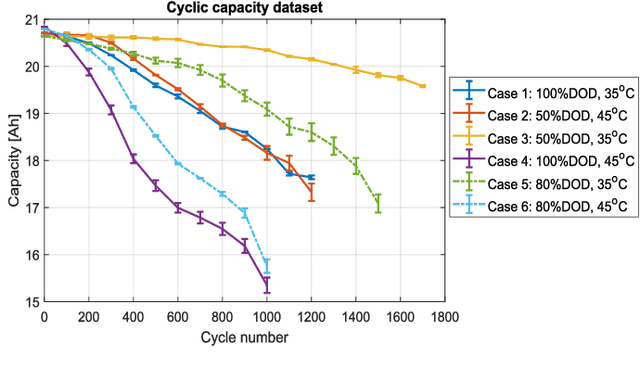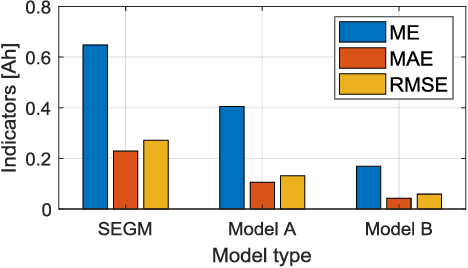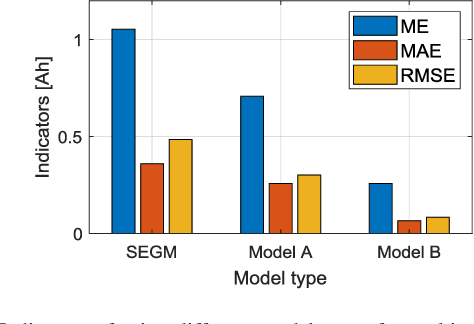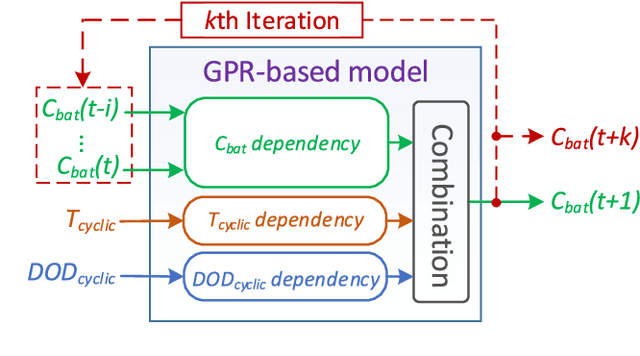Modified Gaussian Process Regression Models for Cyclic Capacity Prediction of Lithium-ion Batteries
Paper and Code
Dec 31, 2020



This paper presents the development of machine learning-enabled data-driven models for effective capacity predictions for lithium-ion batteries under different cyclic conditions. To achieve this, a model structure is first proposed with the considerations of battery ageing tendency and the corresponding operational temperature and depth-of-discharge. Then based on a systematic understanding of covariance functions within the Gaussian process regression, two related data-driven models are developed. Specifically, by modifying the isotropic squared exponential kernel with an automatic relevance determination structure, 'Model A' could extract the highly relevant input features for capacity predictions. Through coupling the Arrhenius law and a polynomial equation into a compositional kernel, 'Model B' is capable of considering the electrochemical and empirical knowledge of battery degradation. The developed models are validated and compared on the Nickel Manganese Cobalt Oxide (NMC) lithium-ion batteries with various cycling patterns. Experimental results demonstrate that the modified Gaussian process regression model considering the battery electrochemical and empirical ageing signature outperforms other counterparts and is able to achieve satisfactory results for both one-step and multi-step predictions. The proposed technique is promising for battery capacity predictions under various cycling cases.
 Add to Chrome
Add to Chrome Add to Firefox
Add to Firefox Add to Edge
Add to Edge